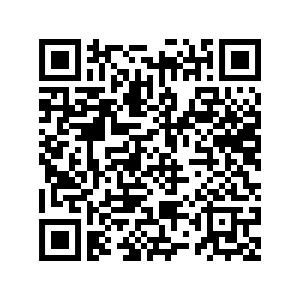Students, parents, community asked to take survey on cell phone usage in schools

Jefferson County School Superintendent Sam Dasher guesses that 85 percent of area middle schoolers have their own cell phones and assumes that easily 90 to 95 percent of high schoolers do as well. Like most other school systems across the country, his is trying to determine how best to manage having these devices in the classroom.
Should they be banned? Should they be tolerated with restrictions? Or teachers embrace the devices and integrate phones into lessons?
“At their worst they are a distraction,” Dasher said. “Not all, but some kids post on social media during class, take photos of themselves or other students when they’re not supposed to. The best use is when that cell phone becomes a tool of instruction. There are some teachers who have used them as clickers to get silent responses from students that instantly tally on the screen. There are teachers who do virtual quests. They are basically hand-held computers and can be used to do research.”
The school system is currently conducting a virtual survey and asking teachers, students, parents and community members to scan a QR code, go online, and provide their views on this issue.
“There is a national conversation about the use of cell phones in schools and whether students should have them or not,” Dasher said. “A lot of places let students have them and try not to police too much whether or not they can bring them. The reality is, we’re seeing problems with cell phones. Kids are using them inappropriately. They are accessing social media during school times. And a lot of the problems we see in schools are manifestations of things that happen on social media. It’s difficult for parents and school officials to police social media, but it’s something we have to work together to do.”
The survey is school system’s attempt to gather some basic data regarding the community’s opinions, beliefs and philosophies regarding this issue and then it plans to use that data to promote a dialog that will inform any policies the system implements for the 2023-2024 school year.
It gathers some basic demographic information, then asks polls opinions on whether or not phones should be allowed in schools, how much access students should have to their phones and if they are banned or students use them inappropriately, what sorts of consequences should be in place.
In mid-January, just over 100 people had taken the survey and Dasher said that the response was largely split 50/50. By Feb. 9, the results were showing that some 64 percent of participants felt phones should be allowed. At that time, a preponderance of those participating in the survey were teachers.
“We’re going to leave the survey up through February at least,” Dasher said. “We're hoping to get more parents, more students and more stakeholders to take part. Share it with your friends, family, your kids, with whomever, because we want as many people in the community to take it as possible. But we ask that you only take it once.”
Dasher said that the primary complaint is that students are using the phone and ear pods to listen to music during class when they should be listening to their teachers.
“You’ll see kids sometimes surfing social media, texting each other, talking to whomever, to each other, sometimes to parents during class,” he said. “You have some people who feel they are distractions and create chaos. But then there are parents who want their child to have them for after school activities or in the event of an emergency.”
The expectation is currently set by each school. In the county’s elementary and middle schools, students are allowed to have phones, but cannot take them out without approval. Students at the high school can have their phones out at designated times, such as between classes and at lunch, but not normally during class.
Dasher said that the school system wants to create a consistent expectation across its schools. It hopes that if students learn responsible usage of this technology young, then the schools will have fewer problems with it in the older grades.
“We need a consistent expectation,” Dasher said. “There is a theory of thought that you use cell phones as part of the lesson. And there are those teachers who have mastered that, or if not mastered how to use them as part of the lesson, mastered how to manage the cell phones with charging stations or cell phone caddies. Not all teachers are struggling with that, but you prepare for your weakest link.”
Most of policies concerning cell phones in schools have been made in isolation from parents and the community, Dasher said. He wants to change that in his school district.
“Regardless of what we do, it’s only going to be as effective as the partnership between home and school in making sure it happens,” he said.
The school system will be holding its next community outreach meeting Feb. 23, at 6 p.m. at Wrens Elementary. During that meeting parents and teachers will hear Lindsey Heritage share information on a program called, The Basics. Dasher said that it is designed to help parents find ways to engage with their children using games, reading activities and various interactive play activities to help their kids develop a love of learning and build a stronger child-parent bond.
Dasher expects the cell phone issue to be the focus of it’s yet to be scheduled March outreach meeting.
This article originally appeared on Augusta Chronicle: Community asked to take survey on cell phone usage in schools
